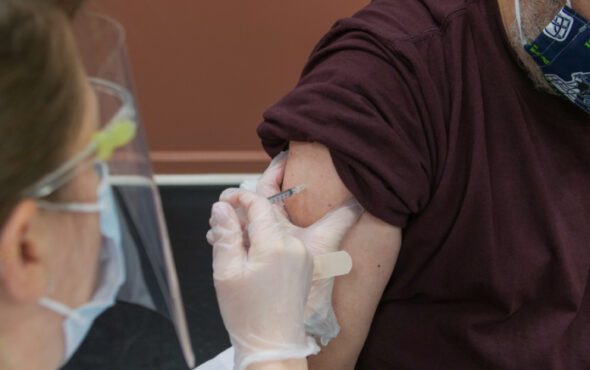
The only vaccine still being tested against HIV in late-stage clinical trials has failed, researchers announced on 18 January.
Known as Mosaico, the trial got underway in 2019 and was run out of eight nations in Europe and the Americas.
Almost 3,900 men who have sex with men and transgender people, all of which were considered to be at high risk of contracting HIV, took part in the study.
Scientists at the Johnson & Johnson-owned company Janssen Pharmaceuticals stated that the vaccine posed no health risks, though was simply ineffective at strengthening the immune system against HIV when compared with a placebo.
Dr. Penny Heaton, a spokesperson for Johnson & Johnson, said: “We are disappointed with this outcome and stand in solidarity with the people and communities vulnerable to and affected by HIV.
“We remain steadfast in our commitment to advancing innovation in HIV, and we hope the data from Mosaico will provide insights for future efforts to develop a safe and effective vaccine.”
“There are other strategic approaches”
It is believed that this defeat will set progress toward developing a vaccine back by three to five years, though other early-stage trials could still still prove effective.
Dr. Anthony S. Fauci, the former director of the National Institute of Allergy and Infectious Diseases (NIAID), described the news as “disappointing” but highlighted that “it isn’t the end of the effort toward developing a vaccine”.
“There are other strategic approaches,” he added.
The fight against HIV has come a long way since the epidemic began roughly 40 years ago, though the virus still infects around 1.5 million people per year and kills about 650,000.
PrEP (pre-exposure prophylaxis) reduces the risk of getting HIV from sex by about 99% when taken properly, while other medications make it possible for someone who is HIV-positive to be undetectable and therefore unable to pass the virus on.
“The ultimate prevention modality for any infection, particularly viral infection, is a vaccine that’s safe and effective,” Dr. Fauci added. “That’s the reason why the field is going to continue to pursue very active research in that area.”



